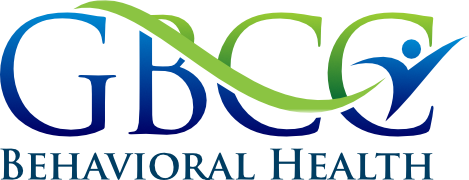As we all know, the adolescent years are filled with growing pains and school drama that may make it harder to spot the difference between a “moody teenager” or symptoms of clinical depression. While less common in children under the age of 12, the risks of depression increases significantly in adolescence. Studies show that one-in-five teens between 13-18 years old will experience depression before adulthood, as will 13% of kids between the ages of 5-15.

Understanding risk factors for teen depression
Depression is a common mental condition that can affect all age groups and, if left untreated, can have severe effects on those we care about. However, perhaps the most frightening statistic for parents is this: Suicide is the third-leading cause of death for young people ages 15-to-24.
It’s important for parents and caregivers to know what signs would indicate your teenager is struggling with something more serious than age-appropriate moodiness. If clinical depression runs in the family, it is especially important for adults to communicate with children and teens while being open, loving, non-judgmental, and accepting.
Here are some signs your teen may be suffering from depression:
1. Problems at school: Depressed teens have more trouble concentrating. They may exhibit a lack of motivation and a decreased interest in activities that used to excite them. Some teens even refuse to go or participate with online school and they may have a sudden decline in grades.
2. Poor self-esteem: As their bodies adjust to puberty and growth, it’s not uncommon for the teenage years to be filled with insecurity. However, plunging self-esteem can be a major sign of depression. If your teen seems to never be happy with their appearance or is overly-critical with themselves, their lack of confidence could be a symptom of feeling unlovable or worthless.
3. Changes in sleep: Depression can lead to people either oversleeping or suffering from insomnia. The two extremes can be a red flag for your teenager, as well as a sudden change in sleep activity. Some depressed teens may be more slow-paced than usual, while others could take up a more anxious, fast-paced state that involves nervous pacing or constant fidgeting.
4. Changes in eating and weight: Food can be a go-to vice for feelings of depression. Those who are experiencing clinical depression may have a sudden, extreme increase in appetite, or no appetite at all. Studies have shown relationships between depression and weight related concerns.
5. Deep sadness that goes on for 2+ weeks: Crying for what appears like no reason, irritability, a negative change in behavior, could all be signs of depression. If your teenager has appeared deeply sad for over two weeks, this consistency could align with a persisting mental health condition that should be addressed with a provider.
7. Reckless behavior. Reckless or risk-taking behavior (such as substance use, reckless driving, and sexual promiscuity) could all be signs of a larger looming mental health condition. If your teen is frequently engaging in risky behavior that is ongoing, extreme, and sometimes life-threatening, then it you should seek help from a mental health professional.
6. Talking about death or suicide. The biggest red flag of teen depression would be if they make comments about not wanting to be alive or threaten to harm themselves in any way. Any time a person makes verbal statement or social media posts about self-harm or suicide, like “I wish I were dead,” it should be taken seriously. Remember, talking to your child about suicide will not give them the idea to attempt suicide. Be direct and supportive if you are concerned about suicidal threats or statements. You can also call or text the 988 Suicide and Crisis hotline (Simply dial to talk or text 9-8-8). Explain why you are concerned and a support specialist can guide you through how to help. The hotline is open 24 hours a day, 7 days a week.
You can never be overly cautious

If you feel your child is suffering from non-life threatening symptoms of depression, talk to them and know that our providers are here to help. You can request an appointment here or place a confidential call to one of our patient coordinators to talk about our quick and easy evaluation process.
References:
https://www.everydayhealth.com/depression-pictures/subtle-signs-your-child-is-depressed.aspx
